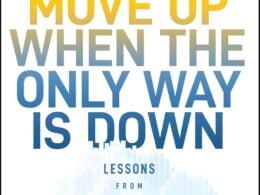The following is excerpted from “Crisis Ahead: 101 Ways to Prepare for and Bounce Back from Disasters, Scandals and Other Emergencies” by Edward Segal. Nicholas Brealey Publishing © 2020
The coronavirus crisis
This is not the introduction I intended when I completed the draft manuscript for “Crisis Ahead.” After COVID-19 grew from a regional outbreak to a full-blown international crisis, I felt a new sense of purpose and urgency in publishing the book. I want to share my thoughts with you about how the coronavirus crisis compares with other crisis situations and how we can learn from it—even as the crisis continues to unfold.
Currently, there are many unanswered or unanswerable questions about the crisis, including:
- Are we at the beginning of the end or the end of the beginning of this global public health emergency?
- Is this a one-time crisis or will the virus return every year like the flu?
- How will the virus change the ways we live and work?
- Is the effect the crisis is having on the national and global economies going to be temporary?
The coronavirus crisis has several things in common with many of the 100 plus crisis situations I discuss in the book, including:
- It was sudden and unexpected.
- No one had prepared or trained for it.
- Even if companies had crisis plans in place, they realized too late they needed comprehensive contingency plans to deal with this particular crisis.
- People scrambled to respond quickly and in the best ways they could.
- Experts were consulted for guidance on what to do, when to do it, and how to do it.
- It is not clear how we will recover or how long it will take to return to normal.
StartupNation exclusive discounts and savings on Dell products and accessories: Learn more here
This is not the first time we’ve dealt with a health crisis
There are early lessons to be learned from this virus crisis. Together with the best practices for managing any crisis, the lessons include:
- The importance of having a plan and testing to ensure it will work
- Heeding early warnings
- Having enough of the right resources
- Responding quickly
- Telling the truth
- Accurately gauging the impact of the crisis
- Learning from the experiences of others
- Adhering to the facts
- Setting realistic deadlines
Related: 5 Ways Your Business Can Handle a Crisis
How to respond to COVID-19
Most companies have not dealt with a crisis before, and certainly not one like the COVID-19 crisis. As it unfolds, it’s clear many businesses and organizations are flying blind. They run the risk of going against the dozens of best practices for managing any crisis.
Unfortunately, every day the crisis continues means companies may be at risk of making crisis management mistakes they will soon regret.
Here are some recommendations to help you avoid making those mistakes:
- Don’t say or do anything that may add to people’s anxiety, fear or concerns about the pandemic. Everything that is said and done should help provide as much confidence and accurate information as possible.
- Express empathy and understanding for what others may be thinking or feeling.
- Obtain the facts about the crisis from credible sources, such as the U.S. Centers for Disease Control and Prevention and the World Health Organization.
- Follow the news and developments about the virus. Keep a close eye on how COVID-19 is affecting any and all aspects of your business, including employees, sales, inventory and customers.
- Don’t repeat rumors, speculation or questionable social media posts. Cite the source of the information and alerts you share with others.
- Communicate often. Let people know exactly how the crisis is affecting your company or organization and what is being done or will be done about it. You should be the source of reliable information about how the disease is impacting your business.
- Be transparent. Post and distribute updates and key messages about the impact of the virus on your business. If appropriate, establish a 24/7 hotline as another way to help answer questions or concerns from worried customers, investors or the public.
- Don’t minimize or sugarcoat bad news. Remember that people can find information about your company—or inaccurate information—from a variety of sources.
- Always tell the truth—no matter how much it may hurt. Otherwise your credibility and the trust people have placed in your organization will suffer.
- If you have a crisis plan, follow it, then test and update it on a regular basis to address the current situation.
- If you don’t have a plan, make one now. Letting people know you have a plan for dealing with this or any other crisis can help provide a level of confidence that you know what you are doing and are doing it in a logical, comprehensive and coordinated fashion. If you need it, there’s a template for a generic crisis management/communication plan at publicrelations.com. Enter this case-sensitive password (don’t include the period): CrisisPlan2020. From there, you can copy or download a template, then fill in the blanks and customize, update and test it periodically.
- Secure the help you need. This is not the time to wing it. If there is any aspect of your crisis management plan for which you need help implementing, don’t hesitate to bring in the expertise you need to get the job done, and get it done right.
- Stay ahead of the curve. As the crisis continues, work up your own confidential and worst-case projections about how the virus may impact your company, and plan your next steps accordingly—including how you will bounce back after the crisis is over.
- Don’t assume the coronavirus crisis will end soon. You may be in for a long and bumpy ride.
Sign Up: Receive the StartupNation newsletter!
A sure thing
Even as the world grapples with the COVID-19 crisis, it is not too early for businesses and organizations to start preparing for the next crisis. History shows there is always a next crisis. And the sooner you are ready for it, the better.
“Crisis Ahead” is available now in e-book format; the paperback is available for pre-order and will be released on June 16, 2020.






